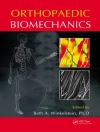The authors address in particular the role of hormones and their links with other maternal environmental mediators in developmental programming. The crucial nature of the placenta as an interface and target between maternal and foetal environments is addressed. Emphasis is made on the emerging science of epigenetics as a potential explanation for how environmental events that occur during brief windows of development may exert effects that impact upon somatic cells through many rounds of mitosis for much of the life span of the subsequent organism.
Cuprins
Foreword.- Early growth and later health: findings from the Helsinki Birth Cohort Study by Johan G. Eriksson.- Male and female placentas have divergent transcriptomic and epigenomic responses to maternal diets: not just hormones by Anne Gabory, Alexandre Vigé, Jean Lesage, Isabelle Fajardy, Laure Ferry, Linda Attig, Anne Vambergue, Didier Vieau, Jean-Philippe Jais, Luc Jouneau, and Claudine Junien.- Glucocorticoids and fetal programming; necessary and sufficient? By Jonathan R. Seckl.- Developmental programming and the placenta: focusing in on glucocorticoids by Caitlin S. Wyrwoll.- Maternal stress and in utero programming by Louise C. Kenny, Claire Everard and Ali S. Khashan.- Developmental epigenetics and risks of later non-communicable disease by M.A. Hanson, P.D. Gluckman and K.M. Godfrey.- Epigenetic effects of extreme intrauterine growth in humans by John M. Greally.- The Role of the Placenta in Fetal Programming by John Challis, Debora Sloboda, Shaofu Li, Thorsten Braun, Frank Bloomfield, Ghazala Begum, Anne White, Felice Petraglia, John Newnham.- Developmental Origins of Diabetes: The Role of Epigenetics by Rebecca A. Simmons.- Glucocorticoids, programming and the transmission of effects across generations by Amanda J. Drake.- Subject index.
Despre autor
Jonathan Seckl is a Professor of Molecular Medicine at the University of Edinburgh, Endocrinology Unit, Centre for Cardiovascular Science at Queen’s Medical Research Institute.












